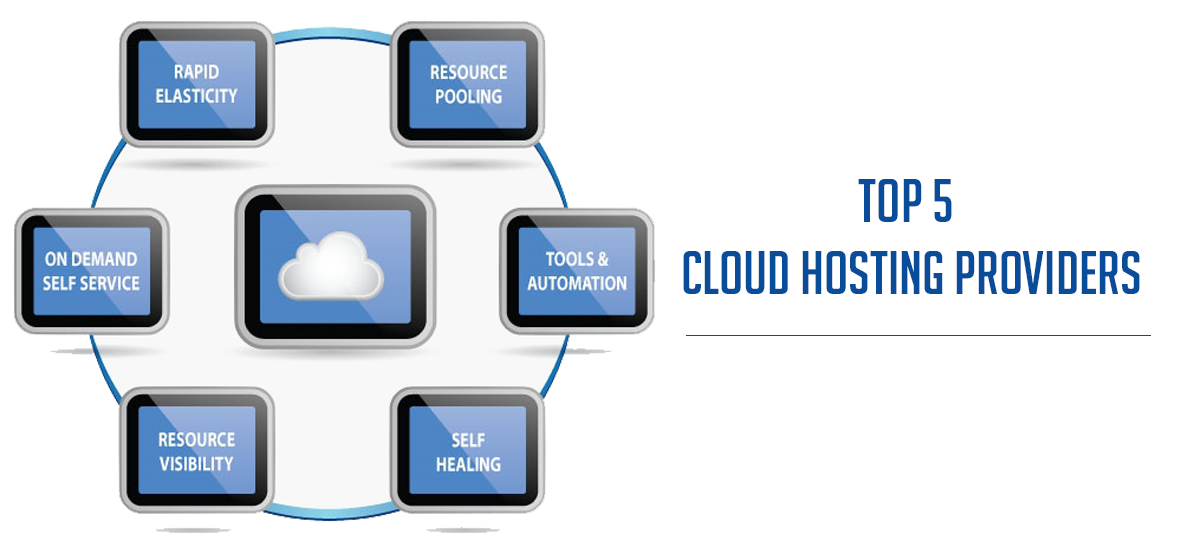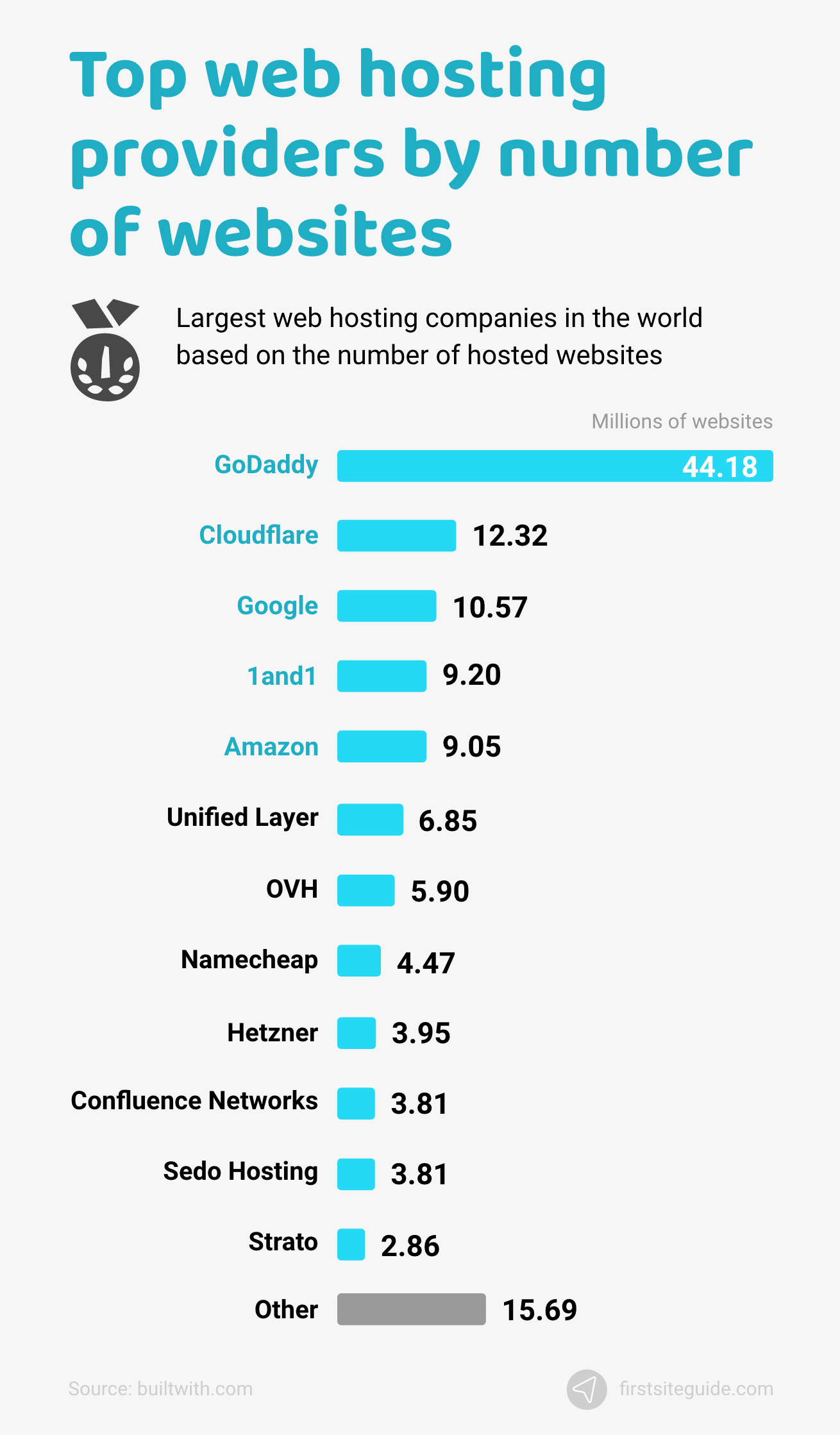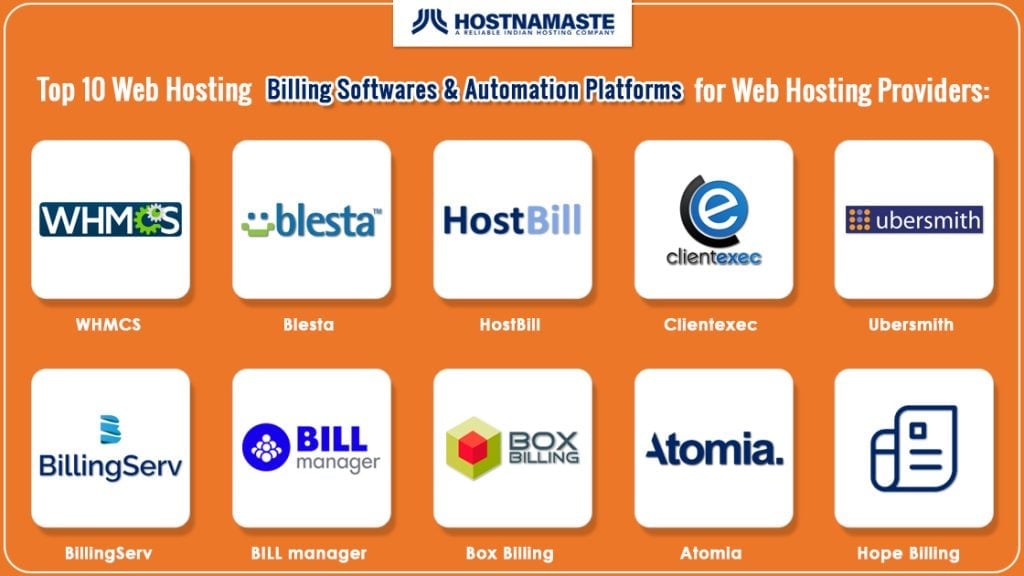In today’s digital world, having a reliable hosting provider is crucial. Your website’s performance depends on it.
Choosing the right hosting provider can be challenging. There are countless options, each with unique features and benefits. Your choice impacts your website’s speed, security, and overall user experience. Whether you’re a small business owner or a blogger, the right hosting solution is essential.
In this post, we will explore the top hosting providers. We’ll look at their features, pricing, and customer support. This guide will help you make an informed decision. Let’s dive in and find the best hosting provider for your needs.

Credit: www.cooperativecomputing.com
Introduction To Top Hosting Providers
Choosing the right hosting provider is crucial for your website. A good hosting provider ensures your website runs smoothly. It also guarantees that your site is always available to your visitors.
In this blog post, we’ll discuss the top hosting providers. We’ll look at why hosting providers are important and what criteria you should consider when selecting one.
Importance Of Hosting Providers
Hosting providers store your website’s data on their servers. They ensure your site is accessible to users worldwide. A reliable hosting provider can boost your site’s performance. It also improves loading times and uptime.
Poor hosting can lead to slow loading times. This can frustrate visitors and lead to high bounce rates. In severe cases, your site might be offline frequently. This can result in loss of traffic and revenue.
Criteria For Selection
Several factors determine a good hosting provider. One of the main factors is uptime guarantee. Aim for a provider with at least 99.9% uptime. This ensures your website is almost always online.
Loading speed is another critical factor. Faster loading times improve user experience. They also boost your search engine ranking. Look for providers that use SSD storage. SSDs are faster than traditional hard drives.
Customer support is also vital. Reliable customer support can help resolve issues quickly. Look for providers that offer 24/7 support. This ensures help is available whenever you need it.
Scalability is important for growing websites. Choose a provider that offers easy upgrade options. This allows your hosting plan to grow with your website.
Finally, consider the pricing and value for money. Compare different hosting plans. Make sure you get the best features for your budget.
Evaluating Speed
Speed is critical for any website. It affects user experience and search rankings. A fast website keeps visitors happy. It also helps your site rank higher on search engines. Evaluating speed is important when choosing a hosting provider. Here, we focus on two key areas: Load Times and Performance Metrics.
Load Times
Load times refer to how quickly your site loads. A fast load time is crucial. Most visitors leave a site if it takes longer than three seconds to load. Hosting providers play a big role in this. They use various technologies to speed up your site. Look for providers with solid-state drives (SSDs) and content delivery networks (CDNs). These features can significantly reduce load times.
Performance Metrics
Performance metrics help measure your site’s speed. Common metrics include Time to First Byte (TTFB) and Full Page Load Time. TTFB measures how long it takes for the server to respond. A lower TTFB means a faster server response. Full Page Load Time measures the total time to load a web page. Both metrics are essential for evaluating speed. Hosting providers often showcase their performance metrics. This information can help you make an informed decision.
Ensuring Reliability
Choosing a hosting provider is not just about price or speed. Reliability is a crucial factor. You need a provider that ensures your website is always accessible. In this section, we will discuss how top hosting providers ensure reliability through uptime guarantees and server redundancies.
Uptime Guarantees
Uptime refers to the time your website is online and accessible. Top hosting providers offer high uptime guarantees, often around 99.9%. This means your site will experience minimal downtime. A good uptime guarantee provides peace of mind. Your website will be available to visitors almost all the time.
Here’s a comparison of uptime guarantees from top providers:
| Hosting Provider | Uptime Guarantee |
|---|---|
| Provider A | 99.99% |
| Provider B | 99.95% |
| Provider C | 99.9% |
Server Redundancies
Server redundancies are backup measures to ensure continuous service. These include multiple servers, backup power supplies, and data replication. If one server fails, another takes over. This ensures your website remains online.
Some key types of server redundancies include:
- Multiple Data Centers: Hosting providers use data centers in different locations. If one center fails, another takes over.
- Backup Power Supplies: Providers use backup power systems. This ensures servers stay online during power outages.
- Data Replication: Data is copied to multiple servers. If one server fails, your data is safe on another.
These measures ensure your website stays online, even during unexpected issues.

Credit: firstsiteguide.com
Customer Support
Customer support is a crucial factor to consider when choosing a hosting provider. Reliable support ensures your website runs smoothly and any issues get resolved quickly. Let’s explore how top hosting providers excel in this area.
Availability
Hosting providers must offer round-the-clock support. This ensures help is available whenever needed. Many top providers offer 24/7 support. This includes weekends and holidays. It gives peace of mind knowing help is always there.
Support Channels
Various support channels enhance customer experience. Top providers offer multiple ways to contact support. These include live chat, phone, and email. Live chat is popular for quick responses. Phone support is useful for complex issues. Email support is good for detailed queries. Having multiple channels ensures flexibility and convenience.
Security Features
Choosing a hosting provider with robust security features is essential. These features protect your website from various threats. Let’s delve into some key security aspects that top hosting providers offer.
Data Protection
Data protection is crucial for safeguarding sensitive information. Top hosting providers offer:
- SSL Certificates – Encrypt data between the server and users.
- Regular Backups – Ensure data recovery in case of a breach or failure.
- Firewall Protection – Block unauthorized access to your website.
These measures help maintain the integrity and confidentiality of your data.
Ddos Protection
DDoS (Distributed Denial of Service) attacks can cripple a website. Effective DDoS protection includes:
- Traffic Monitoring – Detect unusual traffic patterns early.
- Rate Limiting – Control the rate of incoming requests.
- IP Blocking – Automatically block suspicious IP addresses.
These strategies help mitigate the impact of DDoS attacks, ensuring uptime and performance.

Credit: www.hostnamaste.com
Scalability Options
Choosing a hosting provider with great scalability options is vital. It ensures your website can grow without interruption. Let’s explore key aspects of scalability.
Resource Allocation
Resource allocation is crucial for scalability. Top hosting providers offer flexible resource allocation. You can increase or decrease resources based on traffic needs.
| Provider | CPU Allocation | RAM Allocation | Storage |
|---|---|---|---|
| Provider A | 2 to 8 vCPUs | 4GB to 32GB | 50GB to 500GB |
| Provider B | 1 to 16 vCPUs | 2GB to 64GB | 100GB to 1TB |
| Provider C | 4 to 32 vCPUs | 8GB to 128GB | 200GB to 2TB |
Flexible Plans
Flexible plans are another key aspect. They allow you to scale up or down without hassle. Look for providers offering varied plans.
- Pay-as-you-go plans
- Monthly and yearly subscriptions
- Customizable packages
These plans help manage costs effectively. They ensure you only pay for what you use. Top hosting providers offer these options for better scalability.
Top Hosting Providers
Choosing the right hosting provider can transform your website’s performance. Many options are available, but finding the best hosting provider is vital. This section highlights two top hosting providers to help you decide.
Provider A
Provider A offers reliable uptime, ensuring your site is always available. Their customer support is responsive and helpful. They provide scalable plans to grow with your needs. Their user-friendly control panel makes managing your website easy. Provider A also includes free SSL certificates for added security.
Provider B
Provider B is known for its fast loading speeds. They offer excellent security features to protect your site. Their affordable pricing plans suit various budgets. Provider B provides a one-click installation for popular applications. They also offer a 30-day money-back guarantee.
Frequently Asked Questions
What Are The Best Hosting Providers?
The best hosting providers include Bluehost, SiteGround, and HostGator. They offer reliable service, great customer support, and competitive pricing. Each has unique features tailored to different needs.
How To Choose A Hosting Provider?
Choose a hosting provider based on your website’s needs, budget, and desired features. Look for uptime, speed, customer support, and scalability. Check user reviews and expert recommendations.
Is Siteground Good For Beginners?
Yes, SiteGround is excellent for beginners. It offers user-friendly tools, strong customer support, and easy-to-use interfaces. Their plans are suitable for new website owners.
Why Is Uptime Important In Hosting?
Uptime is crucial because it affects your website’s availability to visitors. High uptime ensures your site is always accessible. Look for providers with 99. 9% uptime guarantees.
Conclusion
Choosing the right hosting provider is crucial for your website’s success. Each provider offers unique features. Consider your needs and budget. Focus on reliability and support. A good host ensures your site runs smoothly. Happy hosting!



Leave a Reply